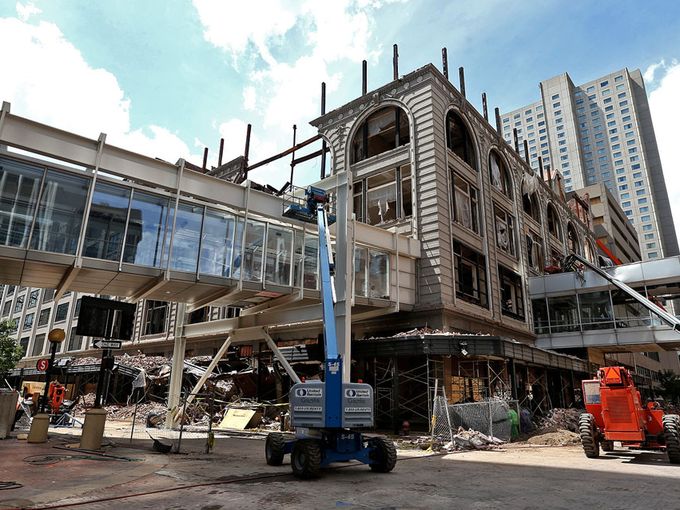
by Jonathan Montgomery | Mar 18, 2015 | Uncategorized
To provide the most accurate appraisal, real estate appraisers need to know as much as you can tell them about your deal. Real estate appraisers need to take everything about your property into consideration when trying to determine how much it’s worth, and your concessions are no exception. An important part of any real estate transaction, unreported or unmentioned concessions have the potential to drastically change your property’s value during an appraisal- and more often than not, that change is for the worse. What is a Concession? In layman’s terms, a concession is anything the seller offers to help sway a buyer into putting their signature down on a deal. The seller walks away with a little less, and the buyer walks away with a little more. You could call it a little back-scratching. Some common forms of concessions: – Paying the loan origination fees or closing costs – Giving cash back for repair costs – Non-realty transaction items (personal property). – Cold hard cash back to the buyer Here’s 2 Quick Examples: A Cash Concession (the most common): Let’s say you want to buy a new home for $100,000, but are a little unsure of the price- and the front porch needs some work. You need to put 10% down and $5,000 in closing costs on that new home- you would need $15,000 at closing. The seller knows you are a bit uncertain, and offers you $5,000 to pay the closing costs. Whether they pay the closing costs out of their pocket, or give you the cash at the closing table- you still only need...

by Jonathan Montgomery | Mar 11, 2015 | Real Estate Terminology, Uncategorized
Are remodeling and renovating different? Yes they are. These two terms are often used interchangeably in real estate. As real estate appraisers, whenever we see the word “remodeled” in one of our comparable descriptions, we always do a little fact-checking just to be safe. After scrolling through tons of comparable photos for every report, we find that more often than not, the agent’s description is wrong. What is a Renovation? ‘ “Renovation” is a rather specific term, literally meaning “to make new again.” The term is (or should be) mostly applied to cosmetic changes- new kitchen faucets, counter-tops or cabinet handles, interior paint… these are all examples of renovation. Renovations don’t normally require any real structural work, and are almost always cheaper and less time-consuming then remodeling. We see lines like “renovated with new paint!” in listing descriptions a lot- but getting a new cabinet or a fresh coat of paint alone is not a renovation. Renovation speaks more to a bigger picture- to take an out-of-date aspect of a property and update it into the modern age. What is Remodeling? Remodeling means “to change the structure of.” The couple at the top of this article are definitely remodeling. If you add carpet, siding, and a ceiling to your basement (effectively making it a finished basement), that’s remodeling. Getting an addition to your property is remodeling. Take a look at the picture: These people went all out. The cabinets have been completely redone, as well as the tiles on the wall, all of the appliances… they even added an island. They did not “renovate” to update a property into the...

by Jonathan Montgomery | Mar 4, 2015 | Uncategorized
“I may not be an appraiser- but I KNOW this house is worth more.” -Everyone who isn’t an appraiser Peolpe make mistakes. I actually misspelled “people” when starting this article, but decided I wouldn’t correct it- it relates perfectly to the article. You noticed my error, but simply overlooked it and kept on reading. It’s okay to overlook things like that when you’re reading- but not when you’re selling a home. Low appraisals are a popular topic in real estate these days. Lots of people say it’s because there’s a depressed market or that there are too many foreclosures but not as many people consider that there’s a mistake in the actual report. And even if you do consider that as a possibility, how do you find it? All good agents look over their appraisals. In fact, all good agents look closely over their appraisals. But no agent can slave over a report, examining every last detail with a microscope- and that’s okay. Here are a few things to keep in mind when reviewing a real estate appraisal. 1. Confirm your gross living area (if you can). The Gross Living Area carries a lot of weight in a real estate appraisal. Gross Living Area (GLA) is measured as the above-ground square footage in a property that can be heated and cooled. If a property hasn’t been updated with additional living space since the last appraisal (no matter how long ago), see if you can get your hands on it. While no two appraisers will measure a home the same way, the measurements should at least be close. If not, you should bring...

by Jonathan Montgomery | Feb 26, 2015 | Real Estate Terminology, Uncategorized
Real estate, like most things, starts to deteriorate with age. The majority of homes in this country are built to last a minimum of 60 years. This doesn’t mean that houses older than 60 years start to lose value based on age alone. Some people are more interested in the “fine wine” of real estate- homes in a historic district. https://www.youtube.com/watch?v=jzM232QJkRU Here’s a quick video from the field summarizing a few points form this article. What is a Historic District? The first ever historic district was established in 1931 in the city of Charleston, California. The city created a Board of Architectural Review (the BAR), tasked with: “the preservation and protection of the old historic or architecturally worthy structures and quaint neighborhoods which impart distinct aspect to the City of Charleston.” The specifics of these rules vary from place to place, but they ultimately work to achieve the same goal. Historic districts exist to preserve the character and feeling of an older neighborhood- to help it maintain it’s vintage feel. I Work in Real Estate. What Does This Mean For Me? Historic districts are created to define an area where several new codes and restrictions are set in place to preserve an area’s character. Let’s say we’re an agent showing a client a lovely little townhome in Georgetown. While they love the property, you overhear them discussing plans to paint the house pink. This isn’t a condo. There isn’t a home owners association telling you what you can and can’t do with your home. Except for the historic district codes. We’ll state again that these codes...

by Jonathan Montgomery | Feb 19, 2015 | Real Estate Terminology, Uncategorized
If you work in real estate, you should have a decent idea of what adds value to a home and what doesn’t. Even if you don’t work in real estate, you may still understand that remodeling a kitchen will (usually) increase your value more than, say, adding a closet. For anyone who doesn’t know, there are typically three major types of rooms that will get you the most bang for your buck when updating a house: Kitchens & Bathrooms Kitchens are easy to identify- there’s usually a set of appliances, counters, cupboards, faucets… we don’t really need to explain what a kitchen is. Having an updated kitchen will basically always add value to a home. For the most part, it’s pretty easy to tell if a room is a bathroom or not. Is there a toilet? It’s a half-bath. Is there a toilet AND a shower/tub? It’s a full bath. Full baths are typically worth more than half-baths- and that’s all you need to know about bathrooms. …but what about bedrooms? What makes a bedroom a bedroom? There are four major requirements that a bedroom must meet to be considered a bedroom. 1. The length and width of a bedroom must be at least 7 feet in both directions. 70 sq ft is the assumed minimum in most cases, but technically speaking, 7×7 length by width is the absolute bare minimum for a bedroom (although I’d still rather not stay in one that small.) 2. A bedroom ceiling must be at least 7 feet tall. When it comes to attic...








Recent Comments